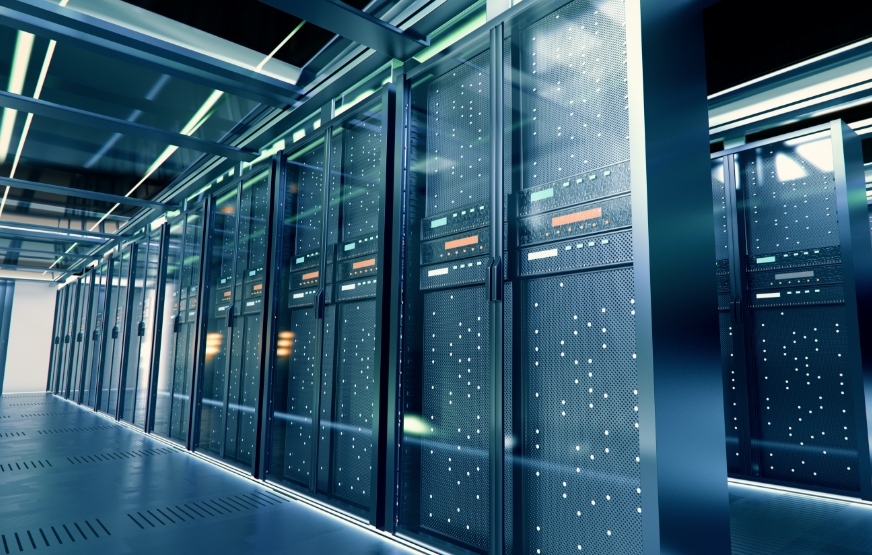The Cloud and Data Center industry is booming in India. According to a report by Credit Rating Information Services of India Limited (CRISIL) Ratings, a highly-respected Indian credit rating agency that is a part of S&P Global, it is projected to attract investments exceeding Rs 45,000 crore (US$ 5.4 Billion) over the three fiscals through 2026.
This growth is driven by not only the rapid digital transformation that India has been experiencing over the last decade, and the virtual explosion of mobile phone apps that technology-savvy Indians use on a daily basis, but also by the advent of cutting edge and game changing technologies such as Cloud Computing. Additionally, there is the rapid adoption of Industry 4.0, that is driven by Artificial Intelligence (AI), Machine Learning (ML) and Internet of Things (IoT).
All these technologies have not only helped industries optimise their processes and serve their customers better, they have also created the need for a digital ecosystem that can store, retrieve and analyse data quickly. This is why there is a scramble for data centers, not just by traditional players like Multinational Corporations (MNC), large banks and financial institutions, but also a variety of Micro Small and Medium Enterprises (MSME) that form the backbone of the Indian economy.
Today, India is home to around 150 data centers, with nearly half of them located in Mumbai and its adjoining areas.
But cities like Chennai, Kolkata and even the National Capital Region of Delhi and its adjoining areas are also attracting huge investments into data centers and allied digital infrastructure. And it is not just the metropolitan areas or their suburbs, today many state governments are inviting companies to set up data centers including Edge facilities in their states, in non-traditional locations such as Tier II and Tier III cities.
Thus, data centers have become the heart of Digital India. But there’s a lot more that goes on to ensure that this heart keeps beating. This includes implementing reliable systems such as Uninterruptible Power Supply (UPS), Data Center Infrastructure Management (DCIM) systems, Heating Ventilation and Air Conditioning (HVAC) systems, reliable Computer Room Air Conditioning (CRAC), as well as other forms of cooling such as liquid cooling or emersion cooling, etc. This is a huge support system and the Cloud and Data Center industry would be left paralysed without it.
Fuji Electric, is a global player that manufactures many of these support systems and equipment as part of a diverse product range that is integral to digital infrastructure. In India, Fuji Electric has facilities in Pune and Chennai and employs over 1,200 people. It has earned a reputation as an industry leader in manufacturing reliable UPS, AC drives and semiconductors.

According to Pankaj Paliwal (Head, Product and Marketing, Fuji Electric, India), “UPS, AC drives, and semiconductors are key to resilience, and our UPS systems are designed for utmost reliability and minimal failure risk.” A reliable UPS is key to ensuring the continuous functioning of data centers, as any outage can prove to be both disruptive and expensive. “Our UPS systems are engineered to maintain continuous power and operational continuity. We aim to ensure stability and prevent disruptions in data centers,” he says.
“Fuji Electric aims to be a key player in supporting the digitalization wave in India, and is committed to equipping this growth with cutting-edge technologies,” says Paliwal. In May 2023, Fuji Electric invested nearly Rs 150 crores to expand the Chennai facility, and is now completely revamping the R&D facilities in both locations. In fact, some proprietary technologies that are currently in development are likely to be launched in early 2024.
Fuji Electric is also mindful of the fact that data centers are major power-guzzlers and across the world there is a burgeoning movement to commit to more environment-friendly technologies. “We prioritize energy efficiency and sustainability in technologies, and are dedicated to reducing our carbon footprint,” says Paliwal, adding, “Our Green initiatives align with global environmental conservation efforts, and we implement eco-friendly technologies in operations and product offerings.”
He further says that Fuji Electric’s energy and environment operations are dedicated to realizing a sustainable society. “In order to establish the course of the Company’s long-term environmental initiatives, we unveiled the Environmental Vision 2050 in 2019. In light of social trends that emphasize the pursuit of a decarbonized society, we have recently revised our Fiscal 2030 Goals in order to realize our Environmental Vision 2050,” he says.
While India is a technologically-savvy nation, and there are hundreds of universities churning out thousands of graduates in Science Technology Engineering and Mathematics (STEM) subjects, there is a need for more specialised training for those who hope to be part of India’s thriving Cloud and Data Center industry. “We recommend training in automation and smart infrastructure, and would like to see more hands-on experience with modern technologies,” says Paliwal reflecting on the skills gap.



